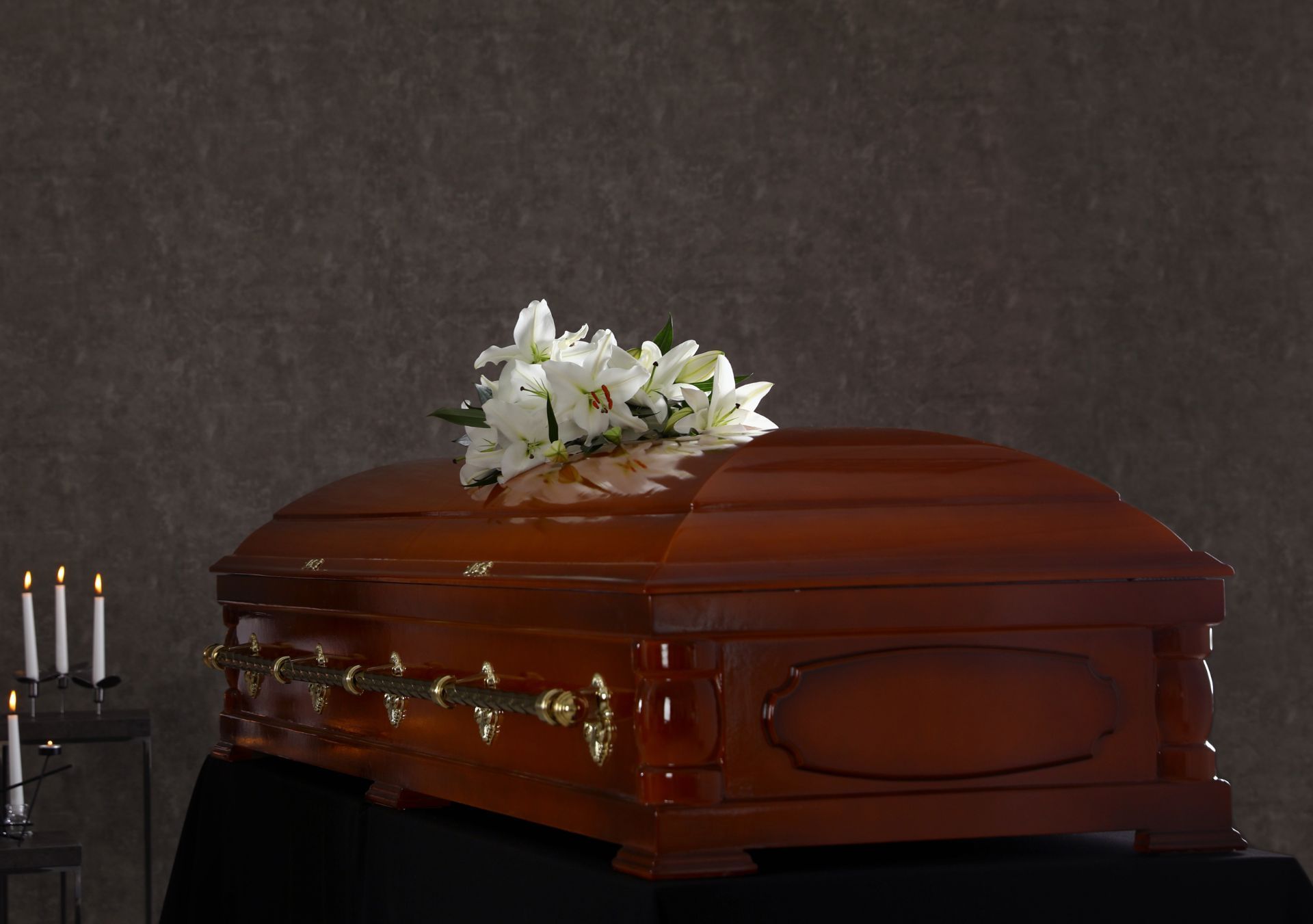
Most Common Business Policies
Index
Contact Us
When operating a funeral home in New York, one must consider the various factors that contribute to a successful business. Among these, securing the right insurance coverage is crucial. This article delves into the intricacies of funeral home insurance, types of coverage available, factors that affect cost, and important aspects to keep in mind when choosing the right policy.
Understanding Funeral Home Insurance
Funeral home insurance is a specialized form of insurance tailored to the distinct risks associated with the funeral service industry. This type of insurance helps protect funeral homes from various liabilities and property losses that may occur during normal operations.
The Basics of Funeral Home Insurance
At its core, funeral home insurance serves to safeguard the business against potential claims that can arise from professional services rendered. This encompasses everything from bodily injury to damage of property owned by clients. Insurance coverage can include a variety of policies designed specifically for the risks funeral homes face.
For instance, general liability insurance is crucial for covering incidents that may occur on the premises, such as slip and fall accidents. Additionally, professional liability insurance protects against claims of negligence or malpractice, which can arise from the handling of remains or the provision of funeral services. Furthermore, property insurance is vital for safeguarding the physical assets of the funeral home, including vehicles, equipment, and the facility itself, ensuring that the business can recover swiftly from potential losses.
Why Funeral Home Insurance is Essential
The funeral industry is rife with challenges that can lead to legal and financial hardships. By investing in comprehensive insurance coverage, funeral homes can ensure that they are equipped to handle unexpected occurrences. This coverage protects not only the business itself but also the families and clients relying on their services.
Additionally, insurance can provide peace of mind for funeral home owners, allowing them to focus on serving families during their time of need without the constant worry of financial repercussions from unforeseen events. This peace of mind extends to the staff as well, who can perform their duties with confidence, knowing that they are backed by a robust insurance policy. Moreover, having adequate insurance can enhance a funeral home's reputation, as families are more likely to trust a business that demonstrates a commitment to protecting its clients and their interests. In an industry where compassion and professionalism are paramount, being adequately insured can be a significant differentiator in attracting and retaining clients.

Types of Funeral Home Insurance in New York
Understanding the various types of insurance available is vital to ensure your funeral home is adequately protected. In New York, there are several key types of coverage that funeral homes typically require.
General Liability Insurance
General liability insurance is fundamental for any business, including funeral homes. This type of insurance covers claims related to bodily injury, property damage, and personal injury that may occur on the funeral home's premises. It can also extend to incidents that happen during off-site events, such as funerals or memorial services.
Moreover, general liability insurance can also cover legal fees associated with defending against claims, which can be a significant financial burden for small businesses. For funeral homes, where emotions run high and interactions with grieving families are frequent, having this coverage is crucial. It not only protects the business financially but also helps to build trust with clients, as they can feel secure knowing that the funeral home is prepared for unforeseen incidents.
Professional Liability Insurance
Professional liability insurance, also known as errors and omissions insurance, is specifically designed for professionals providing services to clients. In the context of a funeral home, this coverage is vital to shield against claims of negligence or inadequate service that can lead to financial losses for clients.
This type of policy helps to protect funeral home operators from lawsuits stemming from perceived failures in providing sufficient support or services, ensuring that they remain financially secure even when faced with legal challenges. Additionally, it can cover issues related to miscommunication about services provided or misunderstandings regarding pricing, which can be particularly sensitive in the funeral industry. By having this insurance, funeral homes can focus on their primary mission of honoring the deceased and supporting their families, without the constant worry of potential legal repercussions.
Property Insurance
Property insurance is essential for funeral homes, covering physical assets like buildings, furnishings, and equipment. In the event of a fire, theft, or natural disaster, property insurance helps to mitigate financial losses by covering repair or replacement costs.
Given the sensitive nature of the services provided, ensuring that the funeral home's facilities and equipment are adequately insured can prevent severe disruptions to operations. This insurance not only protects the physical space where families gather to mourn but also covers specialized equipment such as embalming tools and vehicles used for transporting the deceased. In a field where timely service is paramount, having property insurance can mean the difference between a quick recovery from an unfortunate event and a prolonged interruption of services that could impact grieving families. Furthermore, many clients may inquire about the insurance coverage of a funeral home, as it reflects the establishment's commitment to professionalism and reliability.
The Cost of Funeral Home Insurance in New York
Various factors influence the overall cost of funeral home insurance, making it important for business owners to understand what drives premiums. This knowledge can help funeral home operators plan their budgets accordingly and explore options for cost reduction. With the unique nature of the funeral industry, understanding these costs not only aids in financial planning but also ensures that funeral homes can provide the necessary services without compromising on quality due to financial constraints.
Factors Influencing Insurance Premiums
Several factors contribute to the cost of insurance premiums for funeral homes, including:
- The size of the funeral home and the volume of services offered.
- The location of the business and associated risks (e.g., higher crime rates or natural disaster risks).
- The history of claims made against the business in previous years.
- The types of coverage being selected, with broader policies usually costing more.
- The overall financial health and operational practices of the funeral home.
Additionally, the specific services provided can also play a significant role in determining insurance costs. For instance, funeral homes that offer cremation services may face different risks and liabilities compared to those that focus solely on traditional burial services. Furthermore, the presence of specialized equipment, such as embalming tools or refrigeration units, can also affect premiums, as these items may require additional coverage due to their value and the risks associated with their use.
Ways to Lower Your Insurance Costs
To manage and potentially lower insurance costs, funeral home owners can take several proactive steps. Consider the following recommendations:
- Shop around and compare quotes from multiple insurance providers to identify the best coverage options.
- Increase deductibles, which can lower monthly premiums but require a higher out-of-pocket expense during a claim.
- Implement risk management strategies to minimize incidents that could lead to claims.
- Bundle policies with the same insurance provider for potential discounts.
Moreover, investing in employee training can be a valuable strategy. Ensuring that staff are well-versed in safety protocols and customer service can reduce the likelihood of accidents and improve overall operational efficiency. Additionally, maintaining a clean and well-organized facility can not only enhance the reputation of the funeral home but also lower the risk of liability claims. Regularly reviewing and updating insurance policies to reflect changes in services or business operations is also crucial, as this can help ensure that the funeral home is adequately covered while avoiding unnecessary expenses.
How to Choose the Right Funeral Home Insurance
Selecting the appropriate insurance coverage can be a daunting task, yet it is crucial for the long-term success and protection of a funeral home. Taking the time to evaluate needs and research providers significantly influences the business's risk management strategy.
Evaluating Your Insurance Needs
Begin by assessing your funeral home's operations and identifying potential risks. Consider factors such as the services you offer, the value of your assets, and the nature of your clientele. This assessment will help you determine what types of coverage are essential and how much protection you require.
Moreover, regularly reviewing your insurance needs can ensure that you remain adequately covered as your business grows and evolves over time. For instance, if you expand your services to include cremation or grief counseling, it may necessitate additional coverage. Additionally, consider the impact of local regulations and industry standards, which may dictate specific insurance requirements that are crucial for compliance and operational integrity.
Selecting a Reliable Insurance Provider
Once you've determined your coverage needs, it's crucial to choose a reputable insurance provider. Research their financial stability, customer service reputation, and the specific coverage options they offer to ensure they align with your needs.
Seek recommendations from industry peers or consult online reviews to gather insights about potential providers. Making an informed decision can lead to a stronger partnership and better coverage. It's also wise to inquire about the claims process and how the provider handles customer service issues, as this can significantly affect your experience when you need to utilize your policy. Furthermore, consider whether the provider offers specialized coverage tailored to the funeral industry, such as liability insurance for funeral services or coverage for funeral home vehicles, which can provide additional peace of mind.
In the unfortunate event that a claim needs to be filed, understanding the process can alleviate stress and ensure prompt resolutions. Being informed about the claims process helps funeral home owners minimize disruptions to their operations. This knowledge not only empowers owners to manage their businesses effectively during challenging times but also fosters a sense of confidence when dealing with insurance companies, which can often feel overwhelming.
Steps to Filing an Insurance Claim
Filing an insurance claim generally involves the following steps:
- Notify your insurance provider as soon as the incident occurs.
- Document everything related to the incident, including photos and detailed notes.
- Submit a formal claim with all required documentation and evidence.
- Follow up with your provider for updates on the status of your claim.
Each of these steps is crucial in ensuring that your claim is processed efficiently. For instance, when documenting the incident, it’s beneficial to take clear photographs from multiple angles and keep a detailed log of any conversations with witnesses or involved parties. This thorough documentation can serve as invaluable evidence that supports your claim and can significantly influence the outcome.
Understanding the Claims Review Process
Once a claim is submitted, the insurance company will initiate a review process. This typically involves investigating the incident, assessing damages, and determining the extent of liability. The time this takes can vary based on the complexity of the claim and the insurer’s protocols. Understanding that this review process can sometimes take longer than anticipated can help manage expectations and reduce anxiety during the waiting period.
Being proactive and responding promptly to any requests from the insurer can help expedite the review process and lead to faster resolutions. Additionally, it may be beneficial to maintain open lines of communication with your claims adjuster. Establishing a rapport can facilitate a smoother process, as they may be more willing to provide updates and clarify any uncertainties you might have. Furthermore, being well-prepared with all necessary documentation at each stage can not only speed up the process but also demonstrate your commitment to resolving the claim efficiently.

Legal Requirements for Funeral Home Insurance in New York
New York has specific legal requirements regarding insurance coverage for funeral homes that operators must adhere to. Understanding these regulations is essential for compliance and successful business operations.
State Regulations for Funeral Home Insurance
In New York, funeral homes must maintain certain types of insurance to comply with state regulations. This includes general liability insurance, as well as any other required coverages specific to the business’s operations. It is advisable to stay informed about any changes in regulations that may impact coverage requirements. Additionally, some funeral homes may also consider obtaining professional liability insurance, which can protect against claims of negligence or malpractice. This type of coverage is particularly important in an industry where emotional and financial stakes are high, and where the quality of service can significantly affect a family's experience during a vulnerable time.
Penalties for Non-Compliance
Failure to maintain the necessary insurance coverage can lead to severe penalties and repercussions, such as fines or loss of licensure. Ensuring compliance not only protects the funeral home from potential legal issues but also builds trust with clients seeking services during difficult times. Moreover, non-compliance can result in increased scrutiny from regulatory bodies, which may lead to audits or investigations that can further disrupt business operations. It's crucial for funeral home operators to regularly review their insurance policies and consult with legal or insurance professionals to ensure that they are meeting all state requirements and adequately protecting their business interests.
In summary, securing appropriate funeral home insurance in New York is a critical component of running a responsible and successful business. By understanding coverage options, managing costs, and adhering to legal requirements, funeral home owners can focus on providing compassionate services to families while safeguarding their financial futures. Additionally, establishing a strong relationship with an insurance provider who specializes in the funeral industry can offer valuable insights and support, helping operators navigate the complexities of insurance needs and ensuring they are adequately covered against unforeseen circumstances.
